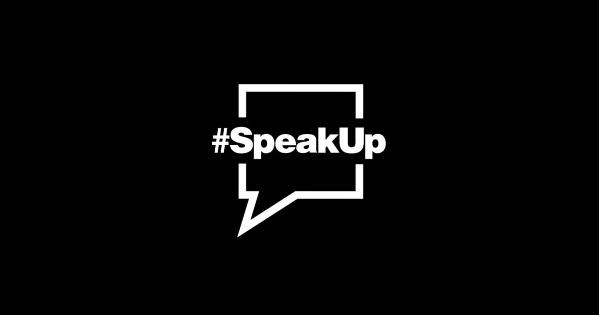How Two AU Faculty Called Out Racist Advertising

The moral of this story is simple but powerful: Speak up when you see something wrong.
For years, every time Michael Brenner and Michelle Engert walked down their street in Munich, Germany, they saw something that deeply disturbed them. Their local Lucaffé coffeeshop was using logos depicting a dancing, barefoot Black man that Engert describes as “looking like it came straight out of the Jim Crow era.”
Lucaffé, which is part of a large and popular chain of coffee shops throughout German and Italy, was using the image (and other similarly offensive ones) on their signs, bags of coffee, espresso cups, and all sorts of other coffee paraphernalia.
“For years, we walked past the café, and from our cultural context found the images deeply upsetting,” says Engert, who is a Senior Scholar in Residence at American University’s Department of Justice, Law and Criminology in the School of Public Affairs.
Brenner, the Seymour and Lillian Abensohn Chair in Israel Studies and Director of AU’s Center for Israel Studies, decided to do some research. He discovered that the Italian company was in business since 1996. “This meant that the offensive images and logos were not a holdout from an era long ago, but a recent decision to use these images to sell coffee and mugs and so on,” he says.
He wrote a letter to the chain’s management, but they replied with a terse “we respect everyone” comment and refused to engage in further conversation with him.
A Change of Tactics
Engert was not ready to give up. She strongly suspected that Lucaffé might reconsider using racist images if they were pressured publicly. So, she and Brenner co-authored an article that was published last January in the Sueddeutsche Zeitung, a major German newspaper. The article, titled “Racism in the Espresso Cup,” called out Lucaffé for using racism to sell products, drawing comparisons to the Jewish experience in Germany.
“What would one think if a private bank were to advertise itself with a logo that showed a happy, beaming Jew, recognizable by the crooked nose, who presented a sack of money?” they wrote. “‘It's only meant well, besides, the Jews can handle money, you know?’ Since most of the Jews in Germany were murdered and German society drew its conclusions from them, there would be an outcry if this were publicly said or displayed, and the company sign would be removed very quickly. The company owner would — rightly — answer to the courts.”
Engert and Brenner concluded, “We don't need a culture police, just respect and a little historical awareness. It's not about pointing to others in a moralizing way, but rather about raising awareness.”
A Response and Momentum
After the article was published, nothing seemed to happen for months. Then suddenly, several weeks ago, a reporter from the popular magazine Der Spiegel contacted Engert and Brenner and asked to interview them about their article and the impact it had.
“It turns out,” Engert explains, “that someone at a major retailer in Germany called Mediamarkt (the most similar American company would be Best Buy) read our article and was troubled by the logo and having those products displaying it in their stores. As a result, Mediamarkt pressured Lucaffé to change the logo if they wanted to continue to do business with them.”
Then a second article was published about the financial impact of Engert and Brenner’s article on Lucaffé. It shared their point of view that images like this are racist, upsetting, and problematic and should never be used for any commercial purpose. “The Der Spiegel article writes about how an idea presented to the public about a company's marketing practices can — and did — lead to change,” Engert says. “The Spiegel article illuminates the economic pressure our article caused and shows the old image and the new one replacing it and explains the costs to Lucaffé of making the change in order to continue its business relationship with Mediamarkt.”
Engert says the moral of the story is to speak up when you see something wrong. “You never know who might notice and what it might change. Now when we go back to our second home in Munich, we, along with the rest of the public, will not have to be upset by these offensive Jim Crow images every time we walk down our street.”
Their actions made a difference in more than one coffee shop, of course. The images will now come down in coffee shops all over Germany and Italy and no longer be used to sell products. “It is a testament to changing times,” Engert says. “The downside is that the company would not likely not have changed without economic pressure. They did the right thing but not for the right reason. But it’s still a win, and we will take it.”